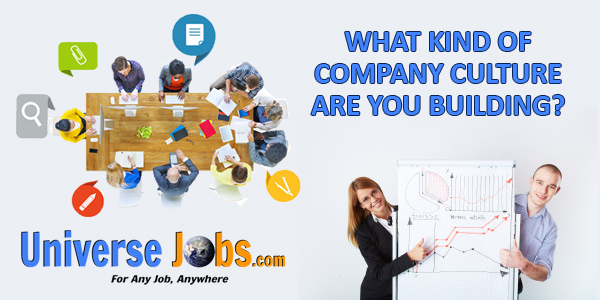Company culture conjures up the values, visions, symbols, systems, language, beliefs, and assumptions. As a matter of fact company culture is a pre-existing condition firmly etched and embedded in its genetic code.
It is all about a great experience within the organization, which should reflect change, as change per-se is the only constant and it is inevitable. Fast innovation, quick iteration, and the ability to adapt to change are the new demands placed on the workplace.
 A sea change is being witnessed at the moment, and the need of the hour is to foster a culture that addresses rapid growth as well as personal satisfaction. It definitely calls for turning existing company policies and conventional norms on their head.
A sea change is being witnessed at the moment, and the need of the hour is to foster a culture that addresses rapid growth as well as personal satisfaction. It definitely calls for turning existing company policies and conventional norms on their head.
It does not help anyone to be at the receiving end of a stifling organizational culture. The way appraisals are conducted, travel assignments are taken care of, the work life balance is handled, training is imparted.
The office constraints consciously need to be turned upside down to overcome bottlenecks and ensurer smooth operations. An environment needs to be created that promotes excellence, nurtures talent, while inculcating entrepreneurial innovation.
People who have studied company culture closely are of the opinion that it takes around 9 to 18 months for the culture to take roots after the organization goes live or become operational. Once the organization culture has been embedded into its DNA, it is carved in stone for good.
It is almost impossible to change 5 or 10 years down the line. In the context of the subcontinent, two major  dimensions of organizational culture is witnessed. The first one pertains to business or money in relation to experience or product organization.
dimensions of organizational culture is witnessed. The first one pertains to business or money in relation to experience or product organization.
The other one is professional versus single proprietor organizations. Let us first take a real good look at a single proprietor company, out here the leader upon waking up starts thinking in terms of yesterday’s margin or revenue from the last week, for that matter, and how to go about increasing the figures.
Matter of factly, one becomes what one measures, over a period of time, without any exceptions. If one is measuring how many transactions are made or how much money is earned per day, for that matter per month, per quarter, and everything is calibrated accordingly, in all likelihood the entity would do well.
Such an organization is singularly driven by financial opportunity. It is said that revenue hides all evils. In such a company one can easily get away with the proverbial murder, as long as the person is delivering the desired figures.
On the contrary if someone happens to be working for an experience oriented company, they would come across a person in a leadership position waking up obsessing with the details of customer experience.
 They are most probably looking for best product selection, watching the price points at which they are being offered, quality assessment, response times and the customer turnaround times with abiding trust at the back of their mind that the quality of inputs would in turn determine the output and take care of the revenue.
They are most probably looking for best product selection, watching the price points at which they are being offered, quality assessment, response times and the customer turnaround times with abiding trust at the back of their mind that the quality of inputs would in turn determine the output and take care of the revenue.
They simply ignore the short term determinants, like making money while doing all possible things to enhance the product or the user experience, an out and out experience based professional enterprise.
The prime identifier, hallmark as well as the prime motivation of such a company is to offer a great product or service to begin with and use the same as a means to an end of making money.
In a single owner company the HIPPO culture rules the roost, essentially it is the Highest Paid Person’s Opinion that matters most. You would find concentric circles of trust built around the core team, and to gain entry inside the sanctum sanctorum you would need to wield considerable influence.
A professional company revolves around core beliefs and sound guiding principles. Creative dissent is encouraged. Within a professional organization decision are not made by influence or relationships but by merit and experience based on hard facts and data.
Professional companies come across as more resilient to the changes in the marketplace and the people dynamics for the simple reason, they are not run on whims, but on sound systems and processes.
Pivoting a product is possible, but the same is not possible with company culture. To put things in perspective, culture starts with the founding team, the onus lies with them. define culture on its merit, go ahead, own it, but never let it happen in a manner that one happens to be at the receiving end of something unpalatable, rather strive to be a part of a dynamic, vibrant and energizing culture.
Read here the Original Post: What Kind of Company Culture Are You Building?





